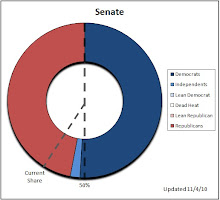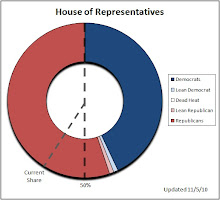People often complain about the condition of the country. Politicians make careers out of attacking the establishment, often times doing absolutely nothing themselves, becoming part of the very establishment they attack. I think it’s time that somebody stands up and says exactly what they would do differently and why, so that is what I’m going to do in this note.
I’m going to attempt to break down the responsibilities of the federal government into three broad categories: social, economic, and foreign affairs. Each category consists of numerous issues, and I could never hope to cover them all. I will, however, attempt to touch on the issues that I feel are most urgent and deserving of attention at the moment. This is part one of the series, in which I discuss the social issues that face this country.
The social issues that face this nation are part of an overarching decay in the moral fabric of the nation. The United States entered into a new age during the 1950s. Economic prosperity allowed the attention of the nation to shift towards eradicating the social issues that have plagued the nation since its founding. The stains of racism and hate were not easily removed. A decade of violence and upheaval nearly tore the country apart, but built the foundation for a better America.
Today, however, have we built our house too big for that foundation? Great leaders like John F. Kennedy and Martin Luther King had a dream for this nation. I do not believe, though, that dream consisted of a nation where faith is ridiculed in the public square, where homosexual marriage is pushed into the mainstream, and where the unborn are unprotected in an effort to protect imaginary rights. Martin Luther King himself was a minister and John F. Kennedy a Catholic, a fact he did not conceal or shy away from.
Any effort to revive the social state of this country, must begin by recognizing that the United States is indeed a Christian nation. The Supreme Court found this to be true in its 1892 ruling, Church of the Holy Trinity v. United States.
“These, and many other matters which might be noticed, add a volume of unofficial declarations to the mass of organic utterances that this is a Christian nation … we find everywhere a clear recognition of the same truth.
The happiness of a people and the good order and preservation of civil government essentially depend upon piety, religion and morality.
Religion, morality, and knowledge [are] necessary to good government, the preservation of liberty, and the happiness of mankind.”
President Woodrow Wilson had this to say about the United States:
“A nation which does not remember what it was yesterday does not know what it is today, nor what it is trying to do. We are trying to do a futile thing if we do not know where we came from or what we have been about …
The Bible… is the one supreme source of revelation of the meaning of life, the nature of God and spiritual nature and needs of men. It is the only guide of life which really leads the spirit in the way of peace and salvation.
America was born a Christian nation. America was born to exemplify that devotion to the elements of righteousness which are derived from the revelations of Holy Scripture.”
The quotations go on forever. John Jay, the first Chief Justice of the United States Supreme Court, member of the First and Second Constitutional Congresses, and co-author of the Federalist Papers, referred to the United States as a Christian nation. The simple truth of the matter is that the United States was indeed “born a Christian nation.” The message of freedom and liberty was preached from the pulpit. The importance of the church must never be forgotten in the creation of this great nation.
Today, it seems as though we have forgotten where we came from. We have to make a choice as a nation today. Do we remember our origins, the Christian threads with which the fabric of our nation’s history has been woven, or do we forget?
We must realize, first and foremost, what a Christian nation is. A Christian nation is not a nation where all of its citizens are Christians. A Christian nation is not a nation built around a central church. These are the things our founding fathers wished to avoid with the writing of the First Amendment. They saw the corruption of the Church of England. They did not like the mingling of the state in matters of the church. Never in their wildest dreams, however, could they have imagined a nation that shunned the celebration of faith.
Religion and morality are inseparable, two strands of a single chord. The concept that we, as a nation, can write laws and maintain justice absent of religious influence is, frankly, absurd. The public officials who write laws have a responsibility to themselves, their constituents, and their God to fight for what they believe is right. What a person believes is right depends entirely on their faith. The concept that we must get through our skulls is that faith is not simply a factor in our decisions; faith is who we are as people. Asking public officials to separate their faith from their public policy is unfair and irrational.
As such, it is important that we allow our personal opinions into the public debate on the issues of marriage and abortion. Let democracy play out.
Isn’t life one of those inalienable rights dictated in our Declaration of Independence? For whom do we mean that right applies; those that are already living? What kind of a right is that if it only applies for those that have it already? Abortion must be outlawed in all circumstances apart from the case of a mother whose life is greatly endangered by giving birth.
On the issue of homosexual marriage, I believe that we need a general overhaul in the way we view marriage. Marriage is, first and foremost, a religious ceremony celebrating a commitment between a man and a woman. Marriage is belittled by the paperwork and bureaucracy that is government. Marriage should be left to the church.
These issues are just small parts of a larger crisis facing this country. We must stop the campaign to remove faith from the public square. Religious communication is the pinnacle of human achievement. The ability to consider that which goes beyond what we see is the single quality that completely separates mankind from all other creatures on the planet. Why should we revert to ignoring that which makes us great? Instead, we should encourage religious discussion in any way we can, not suppress it in order to avoid conflict.
Applying common sense to politics...










No comments:
Post a Comment